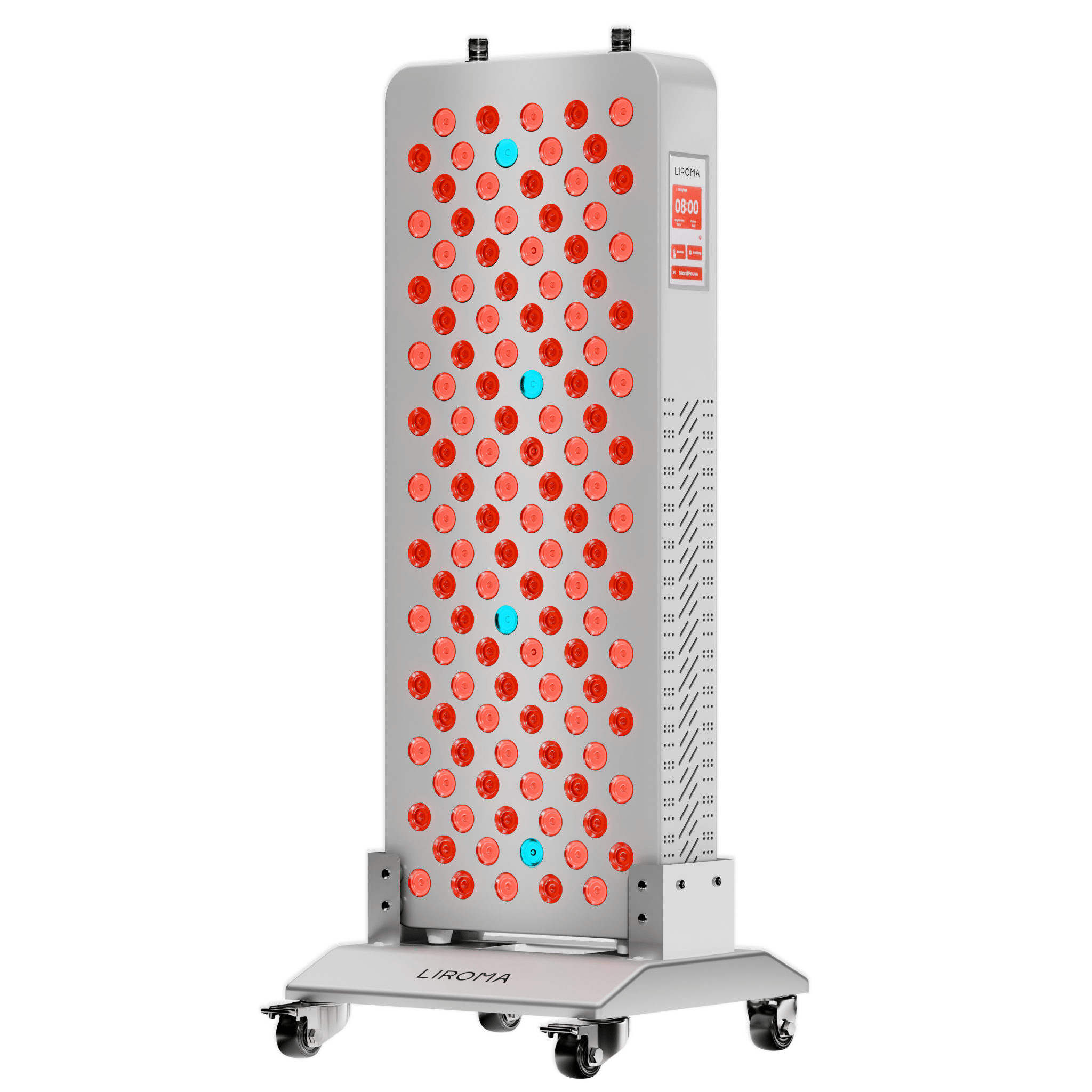
Qu'est-ce qu'un anti-inflammatoire ?
Les anti-inflammatoires sont des médicaments qui réduisent la réponse de l'organisme à l'inflammation. L'inflammation est souvent une réaction naturelle à une blessure, une maladie ou un effort excessif. Bien que cette réaction soit destinée à protéger l'organisme, elle peut parfois provoquer des douleurs, des gonflements et des raideurs.
Souvent utilisé pour :
Les anti-inflammatoires sont souvent utilisés pour traiter diverses affections, telles que :
- Douleurs menstruelles
- les maux de tête et les migraines
- Maux de dents
- Maux de dos
- Rhumatismes et arthrose
- Goutte
- Bursite
- Grippe et rhume

Comment les anti-inflammatoires agissent-ils ?
Les anti-inflammatoires bloquent les substances spécifiques de l'organisme qui provoquent l'inflammation. Ils réduisent ainsi la douleur et le gonflement et vous donnent une plus grande liberté de mouvement. Les anti-inflammatoires naturels agissent souvent en soutenant le système immunitaire ou en favorisant le processus de réparation de l'organisme.
Quels sont les effets secondaires ?
Les anti-inflammatoires classiques, tels que les analgésiques, peuvent avoir les effets suivants
- Maux d'estomac
- des vertiges
- nausées
- Fatigue
- Hypertension artérielle
Les anti-inflammatoires naturels présentent généralement moins de risques d'effets secondaires, mais là encore, il convient d'être prudent en cas d'abus ou d'allergies. En cas de doute, consultez toujours un spécialiste.

Anti-inflammatoires naturels : 4 remèdes
Si vous souhaitez réduire l'inflammation sans recourir aux médicaments de synthèse, pensez aux alternatives naturelles. Celles-ci permettent non seulement de soulager la douleur et l'enflure, mais aussi de préserver votre santé générale.
1. Nutrition/suppléments
L'alimentation est l'un des moyens les plus efficaces pour aider naturellement l'organisme à lutter contre l'inflammation. En ajoutant des ingrédients anti-inflammatoires à votre régime alimentaire, vous pouvez améliorer votre santé et réduire vos symptômes.
- Acides gras oméga-3On les trouve dans les poissons gras (comme le saumon et le maquereau), les graines de lin et les graines de chia. Les oméga-3 contribuent à réduire l'inflammation des articulations et peuvent soulager les symptômes de l'arthrose et des rhumatismes.
- Le curcumaLe curcuma est une épice jaune qui contient de la curcumine, une substance aux fortes propriétés anti-inflammatoires. Le curcuma peut aider à soulager des symptômes tels que les douleurs articulaires, l'arthrose et les raideurs musculaires. Il est souvent utilisé comme supplément pour des effets concentrés.
- BoswelliaLe boswellia, également appelé encens, est un anti-inflammatoire naturel souvent utilisé pour les affections chroniques telles que les rhumatismes et l'arthrose. Le boswellia a un effet calmant sur le système immunitaire et soutient le système immunitaire. les articulations et les muscles.
- Le gingembre: Cette racine est analgésique et aide à lutter contre l'inflammation. Le gingembre est idéal pour les douleurs musculaires les crampes menstruelles et les maux de tête.
- Vitamine D et magnésiumCes nutriments jouent un rôle important dans la régulation de l'inflammation. Une carence peut aggraver les symptômes tels que les douleurs musculaires et la fatigue.
La combinaison d'une alimentation saine et de suppléments de haute qualité peut avoir un impact considérable sur votre bien-être.

2. La thérapie par la lumière rouge
La thérapie par la lumière rouge La thérapie par la lumière rouge, également connue sous le nom de photobiomodulation, est une méthode non invasive visant à réduire l'inflammation et à favoriser la guérison. Elle utilise des longueurs d'onde de la lumière rouge (630-660 nm) et de la lumière infrarouge proche (830-850 nm), qui pénètrent profondément dans la peau et affectent les usines énergétiques de vos cellules, le système immunitaire et le système nerveux central. mitochondries Elles stimulent. Cela permet de réduire la douleur, d'accélérer la cicatrisation et d'améliorer la réparation cellulaire.
Voir toutes les lampes de luminothérapie rouge
Comment cela fonctionne-t-il ?
Lumière rouge pénètre jusqu'à 5-10 millimètres de profondeur dans la peau, tandis que la lumière proche infrarouge atteint les tissus plus profonds. La thérapie est donc efficace pour les douleurs articulaires, la récupération musculaire et les problèmes de peau.
Comment l'utiliser ?
- Fréquence3 à 5 fois par semaine.
- Durée de la formation : 10 à 20 minutes par séance.
- Distance à parcourir50-100 cm de la lampe, sauf indication contraire.
La thérapie par la lumière rouge est sûre, indolore et idéale pour compléter un mode de vie sain afin de réduire l'inflammation et la douleur.

3. Exercice physique suffisant
L'exercice régulier est essentiel pour réduire l'inflammation et préserver la santé des articulations et des muscles. Il stimule la circulation et aide à évacuer plus rapidement les déchets. Il renforce également les muscles autour des articulations, ce qui peut réduire la pression et la douleur.
- Exercices légers comme la marche, le vélo ou la natation sont idéales si vous souffrez d'articulations douloureuses.
- Yoga et étirements favorisent la souplesse et réduisent les raideurs.
- Entraînement musculaire peut contribuer à renforcer les muscles, ce qui permet de mieux soutenir les articulations.
Le plus important est d'être à l'écoute de votre corps et de choisir des exercices qui vous conviennent. Le surmenage peut en effet aggraver les symptômes.

4. Un rythme de sommeil sain
Le sommeil est essentiel à la récupération et à la réduction de l'inflammation dans l'organisme. Pendant le sommeil, l'organisme produit des substances qui inhibent l'inflammation et renforcent le système immunitaire. À l'inverse, un mauvais sommeil peut entraîner une augmentation des niveaux d'inflammation et de la douleur.
Conseils pour un rythme de sommeil sain :
- Créer une routine fixeLes habitudes de sommeil : se coucher et se lever tous les jours à la même heure.
- Évitez les écrans à l'heure du coucherLa lumière bleue des écrans peut perturber votre horloge biologique.
- Veillez à ce que votre chambre soit sombre et fraîche.: cela favorise un sommeil plus profond.
- Utilisez des techniques de relaxation comme la méditation ou les exercices de respiration pour se détendre.
En optimisant votre rythme de sommeil, vous donnez à votre organisme la possibilité de lutter efficacement contre l'inflammation.





















